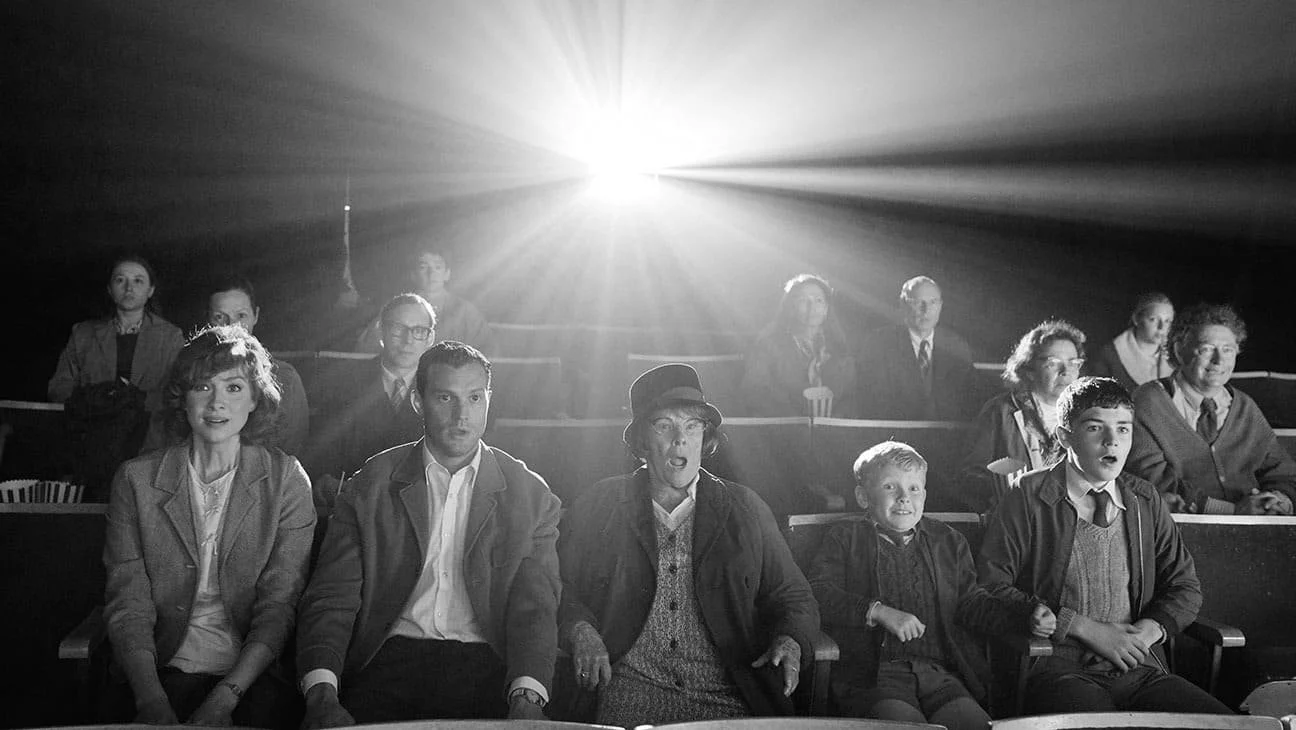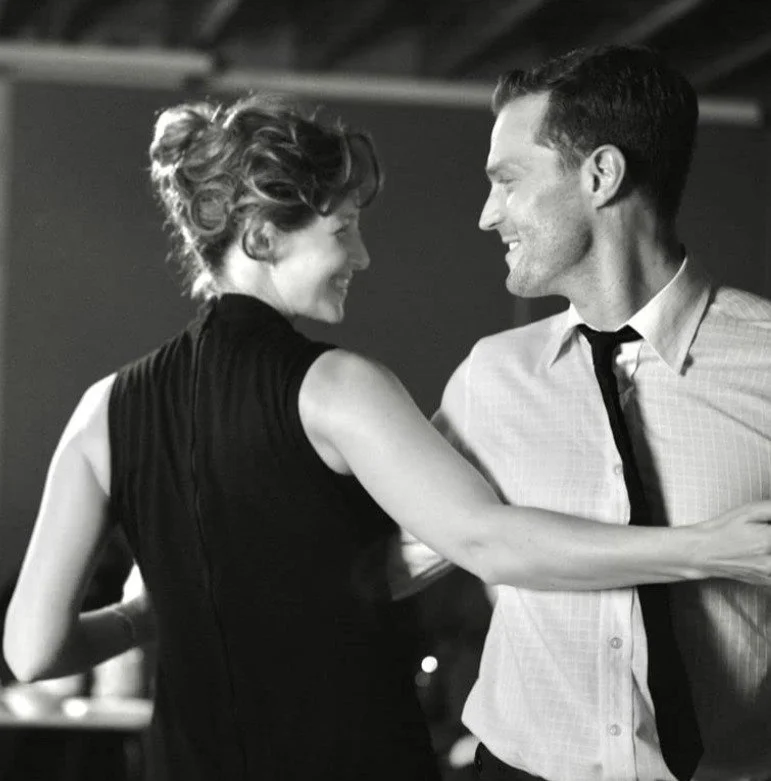Belfast Review
8/10
A sense of place is not easy to capture. Too often a location is a mere backdrop, just the background for the characters rather than a character all its own. It’s not essential to every film, but it always makes a story feel more real. It’s the same feeling I get when I listen to Billy Joel’s “Scenes from an Italian Restaurant.” That may sound like an odd comparison, when I listen to that song, I can imagine every detail of the life snapshots he describes. Every sight and smell are an integral building block of what makes that music special to me.
I have never been to Belfast. I didn’t even know Kenneth Branagh was from there until recently. His childhood experiences give the film an autobiographical touch. Seeing his film made me feel like a resident of that city block the film takes place in. We are shown a few other areas dotted around, but the majority of Belfast takes place in this little street where the characters were born and raised. The day-to-day patterns of the locals create a microcosm within the city. Everybody knows each other here, and those close-knit bonds are an essential part of the ecosystem.
The film focuses on a working-class Protestant family during The Troubles in Belfast in 1969. We are eased into the chaos of those times by taking us on a quick tour of the city block where a 9-year-old boy named Buddy lives with his brother Will, his parents, and grandparents. His father works overseas in England but comes back to visit sporadically. Part of what makes the dynamic between them all work so well is how natural their interactions are. The actors seem like they have known each other for decades. They feel like a family. Jude Hill as Buddy is a remarkable discovery.
Having a kid as the lead puts astronomical pressure to bear the weight of the drama on an actor. Hill is fantastic in the role. Caitriona Balfe as Ma carries the world on her shoulders having to look after the family and keep an eye on the worsening tension between the Protestants and the Catholics. She maintains her composure for much of the film, but those cracks in her armor deepen as the pressures mount. Balfe is wonderful, as is Jamie Dornan as Pa. Belfast goes in a different direction with his character than I was expecting.
Often in stories like this where the husband works overseas, there is a “shocking” reveal that he has a mistress on the side. That would usually culminate in a yelling match between the two with the son looking on with tears in his eyes. Their issues are instead financial with mounting debts and a growing pressure from a local separatist thug, Billy Clanton, to join the cause. The Grandparents Granny and Pop are playing by the wonderful Judi Dench and Ciaran Hinds. The radiant love they have for the rest of the family, especially Buddy, was enough to warm even the sourest soul.
We are lulled into a false sense of security at the beginning of the film. It is a laid-back breezy day as Buddy is enjoying the time away from school. That is brought to a sudden halt when a group of Protestants stages a riot to intimidate the Catholics living on that street. This opening scene is directly inspired by what Branagh witnessed as a child. This transition from carefree to violent drags us into the reality of the time. Buddy is unable to comprehend why there is so much rage towards the neighbors he has known for his entire life. Framing calamity through the eyes of a child has been done many times before. It is far from being a unique idea, but the way Branagh infuses the story with his own background makes it so much more personal.
Emphasizing Buddy’s point of view means the film doesn’t have to worry as much about exposition explaining exactly what is happening in Belfast. The flash between the Catholics and Protestants would be far too difficult to summarize respectfully. All we need to know is filtered through Buddy’s innocent perspective. He doesn’t care what religion somebody is as long as they’re a good person. Setting a coming-of-age tale in such a divisive time could have backfired if the balance of tones was not achieved.
The less we see of the fighting the better. A blockade is erected after the riot, creating a warzone atmosphere that permeates the street. I think the film would have been less effective if it lingered too long on the madness nearby. We see enough to understand how compromised this family’s lives are. Their kids have seemingly normal lives on the surface, but there is always the fear that the brutality we saw at the start of the film could come back any day.
I was engrossed in this world for the vast majority of the running time, but there was one moment that took me out of that daze. The way Billy Clanton’s story was resolved was a bit too much like a movie. I understand his arc had to have an endpoint, but the final confrontation between him and the family was rushed. The incident that sparked these last moments between them was tense, but the scene itself was out of a more traditional hero vs villain scenario. I felt like it could have been more developed and given nuance beyond the times we see them argue. That is the slight problem with showing the riot in the opening scene. I expected more follow-up with Billy’s nefarious intentions.
I wasn’t hoping for another riot to pad the running time; just more context as to the separatist group he was associated with. How deep does their influence run in the community? Have other families been indoctrinated into his line of thinking? If so, could we have seen glimpses of that sprinkled throughout? Not enough to bog down the film with too many conversations that spoon-feed the audience details of exactly what is going on; just enough to give more emotional grounding and gain more comprehension as to why Billy is dangerous. That could have made the last encounter with him more powerful.
That is not enough to undercut what makes the film wonderful. Belfast is a marvelous story that captures the wonder and terror of growing up in a troubled time. I think it is Kenneth Branagh’s best work in years. I imagine there comes a time with many Hollywood directors who make gigantic blockbusters where they want to make something close to their heart. Listening to Branagh talk about the film and where he came from on Marc Maron’s podcast, his passion and energy are infectious. That enthusiasm carries over to the film to great effect.








